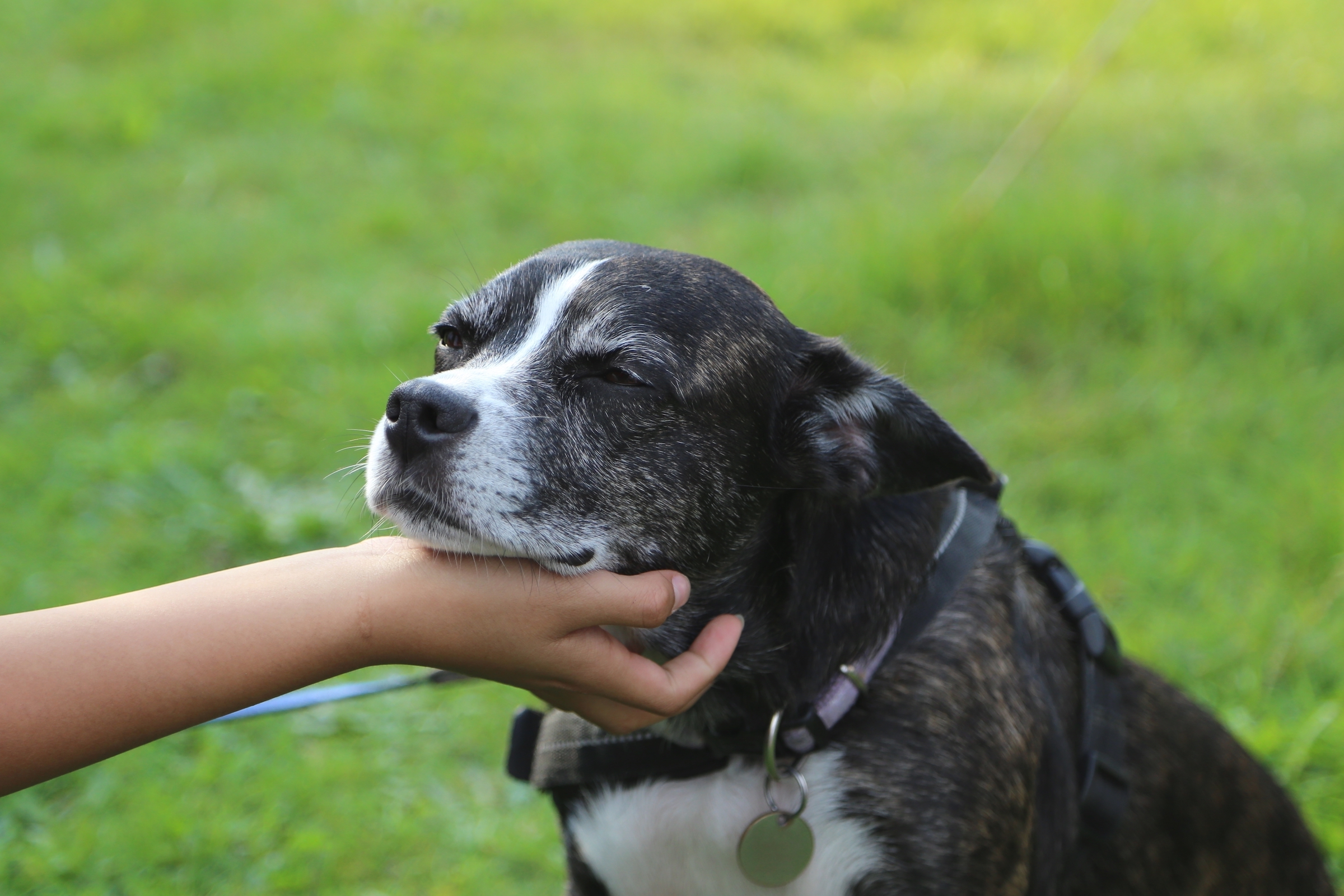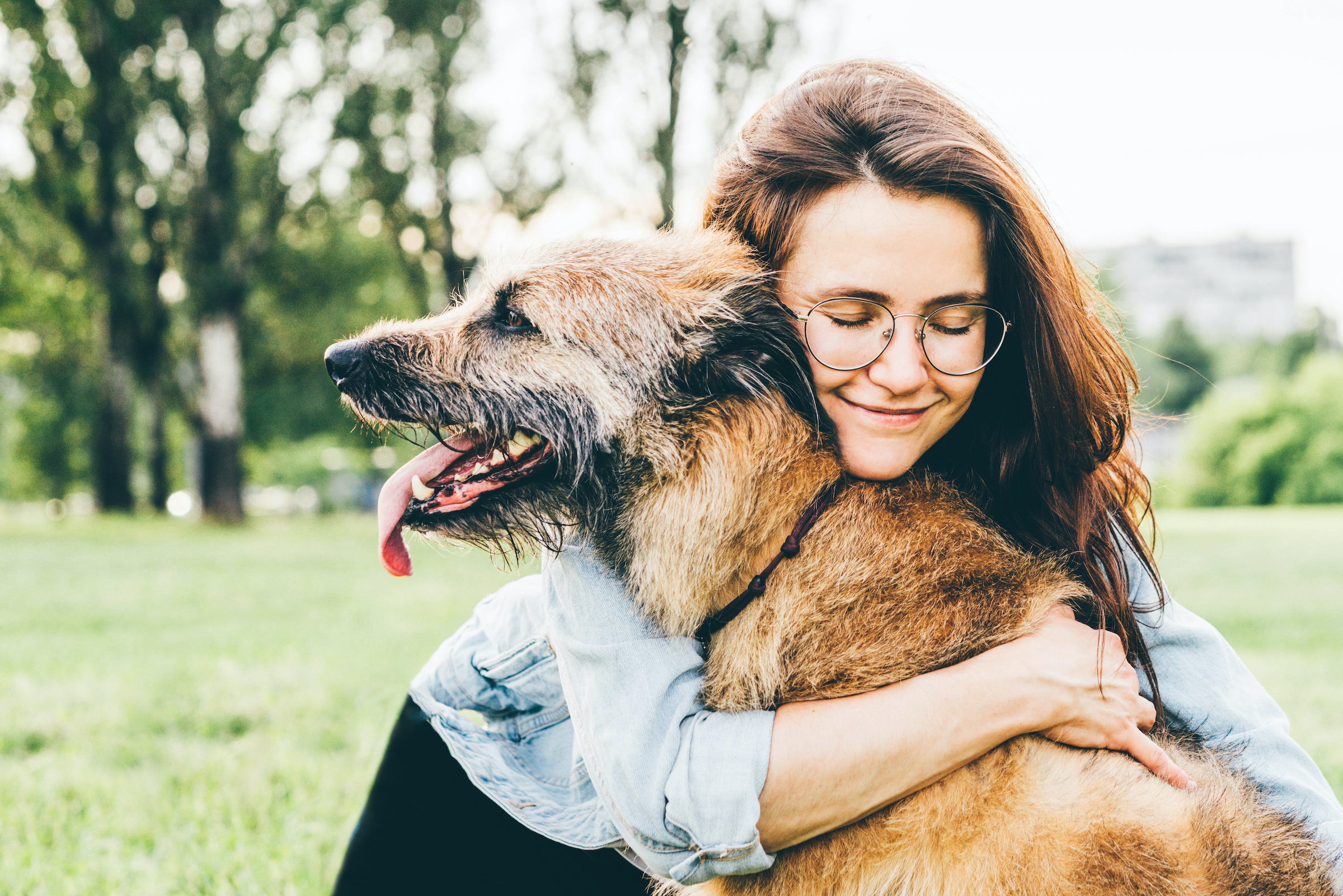Ready for more love? November is officialy Senior Pet Adoption Month, but any month is the paw-fect time to visit your local shelter or humane society. If you’re not quite ready yet, that’s okay, but it’s never too early to start researching.
If you’re thinking of growing your family by four paws, you should consider adopting a senior pet. These loving dogs, cats, and other critters are just as ready for, and deserving of, a home as any other animal, but sadly they are often overlooked by prospective pet parents. In reality, though, adopting a senior pet has many upsides, lots of which you won’t experience with a younger animal. This is what you’ll want to know.
1. Pure, unconditional love
No matter the age, breed, or size of your rescue pet, you’re sure to enjoy loads of unconditional love. Of course, it takes any dog or cat some time to adjust to a new home, so be patient with your new friend if things don’t seem as relaxed as you’d like at first. As you two build trust, things will get easier — we promise!

2. Many senior rescue pets have lost a loving home
It may be hard to think about, but many of the older pets you see in shelters have recently undergone great changes, if not great tragedy. Oftentimes, these dogs and cats had owners that were seniors themselves who may have passed away or had a recent health decline. Family members aren’t always willing to care for the pets, resulting in their surrender to the shelter.
You have the chance to provide patience, love, and companionship to an animal who’s known only stability and kindness. Even greater, you can help that animal through a difficult time in their life so you can get on with enjoying life together.
3. Senior pets are often overlooked
As adorable as a little gray face can be, you may be surprised to learn that senior pets are often the last to get adopted. According to the ASPCA, younger dogs and puppies have an adoption rate of about 60%, compared to senior dogs at only 25%. So remember, adopting a senior pet can be lifesaving for both the animal you adopt and also the one who can take their space in the shelter.
4. Some older rescues are already trained
One perk of getting to know a more mature pet is that they have likely already experienced some form of training during their life. They could even be house trained! Although it may have been a while, these pets most likely will be able to remember obedience and leash skills with just a little practice.
If your rescue isn’t the best at listening to commands, don’t worry. You can always teach an old dog new tricks. Many shelters can recommend training programs or trainers to help you and your new friend better understand each other.
5. Skip the puppy phase
There’s no denying it — puppies are adorable. Puppies are also destructive, needy, and time-consuming (they are babies, after all), so it’s no surprise that many pet parents prefer to adopt an adult dog. A senior dog, though, won’t have any of their puppy mischievousness left, so you won’t need to worry about stolen shoes, chewed furniture, or disobedience.
Don’t be fooled — many older pets still have plenty of energy, so there’s no need to discount them if you’re looking for a playmate or walking buddy. Every animal has their own personality and energy level, of course, so remember that age is just a number.
6. What you see is what you get
While puppies and kittens still have a lot of growing and learning to do, you can take your new senior friend at face value. They won’t get larger (unless they gain weight), go through hormonal fluctuations, or have as many personality changes as younger pets. It’s important to remember that any pet can experience physical or behavioral changes for a number of reasons, but it’s less likely for older animals (via ASPCA).
Positive reinforcement and desensitization training can still help mature pets, so it’s not the end of the world if your new rescue is anxious or distant. Luckily, you’ll usually know about your pet’s behavior and personality before you bring them home, especially since senior dogs and cats are more set in their ways.
Which reason to adopt a senior pet is your favorite? There are so many — more than we could fit on this list — but the only reason that truly matters is the one that’s important to you. If you’re able to open your home and heart to an older animal, you’ll be so happy you did.




